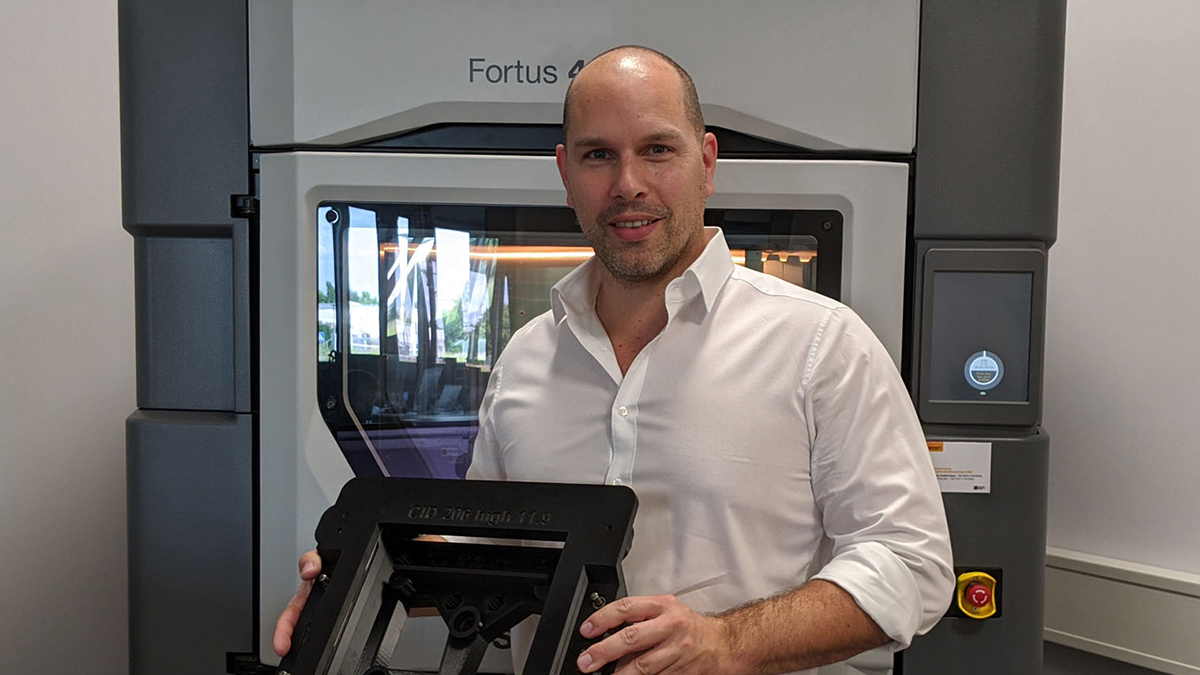Renowned as one of the world’s leading tire manufacturers and the automotive technologies leaders Continental AG actually has an even wider solutions portfolio, including automotive part production, connectivity, automated driving and mobility services via its Continental Engineering Services (CES) division. The company values cost effectiveness and manufacturing speed and so, it uses additive manufacturing effectively. While maintaining the manufacturing quality by using Stratasys’ 3D printer and materials in its own manufacturing centers; it increases manufacturing speed and finds solutions to different needs in the manufacturing process.
Continental has its own Additive Design and Manufacturing (ADaM) Competence Center; which offers both internal and external customers a wide range of additive samples, mechanical parts and series production solutions with metal or plastic assemblies. At this center, Continental produces final production parts, prototypes; and most importantly, jigs and fixtures, for the company’s own production line machinery; using an industrial-grade FDM-based Stratasys Fortus 450mc 3D printer. They use Stratasys’ ULTEM 9085 resin and ESD compatible ABS ESD7 materials to enable the team to produce customised solutions for the production line.
Continental can make ESD-compliant production in a short time with the 3D printing machine
Continental Engineering Services, Head of Samples and Mechanical Solutions, Stefan Kammann told that they carefully select additive manufacturing technologies in their Competence Center according to their high-performance capabilities; so that they can undertake the widest range of applications possible. Saying that; “The Fortus 450mc is a great addition to our portfolio, as it enables us to access highly specialized materials that allow us to meet the requirements of demanding production applications on the factory floor,” Kammann noted that in fact, it’s the only 3D printer they have that is capable of creating ESD-compliant production parts in very little time. Kammann stated that with the Fortus 450mc, they are able to quickly manufacture replacement production tools and parts in high-performance thermoplastics; that perform in the same way they would expect of a traditionally manufactured equivalent.

Multiple electronic parts and components are used in Continental Engineering Services. Their static dissipative properties are of paramount importance for all machine parts that come into contact with electronic components. Its static dissipative feature prevents static discharge that can damage products, impair performance, and even cause an explosion or fire. For this reason, Continental uses ABS-ESD7 material. While meeting the electrostatic discharge standards required for the use of sensitive electronic parts for many fixtures and tools manufactured in-house; this material provides durability and stability. Kamman told that they are able to 3D print the gluing jig; for the automotive display assembly with Stratasys’ ABS-ESD7 material. Stating that this means they have a fast, safe, and ESD-compliant solution in-house that is customisable, Kammann said; “This not only ensures continuous fast production; but also demonstrates how we look for the best technology to solve the manufacturing challenges with which we are faced”.
